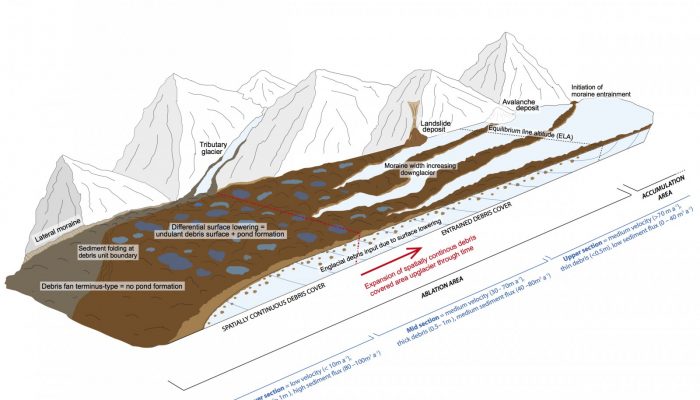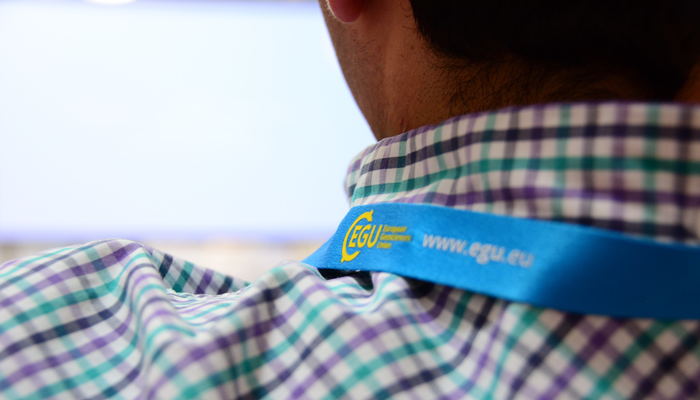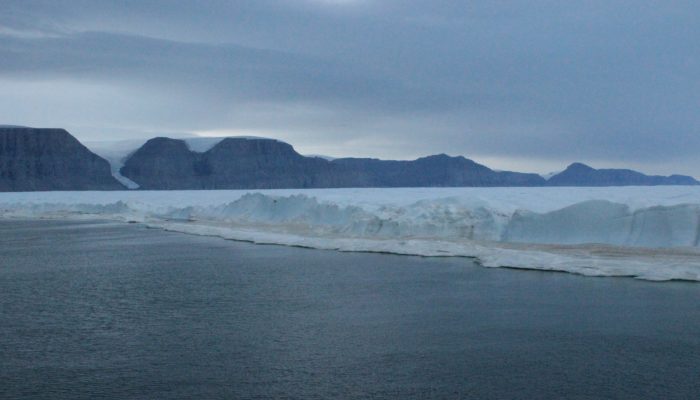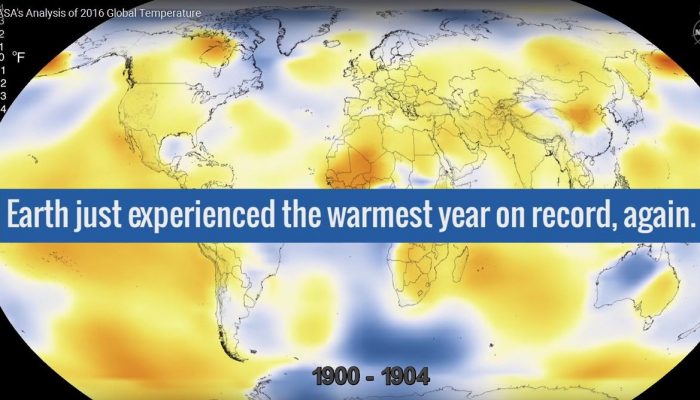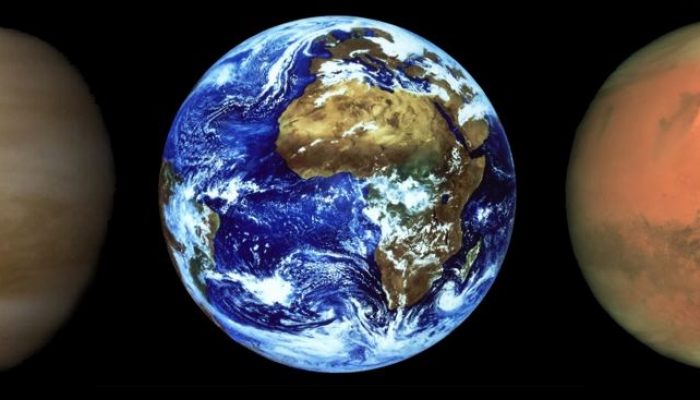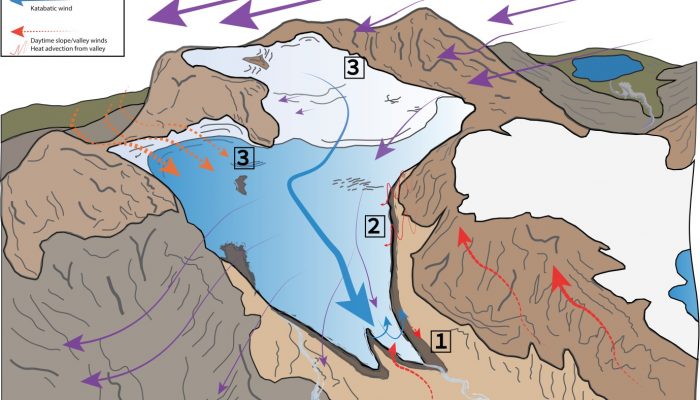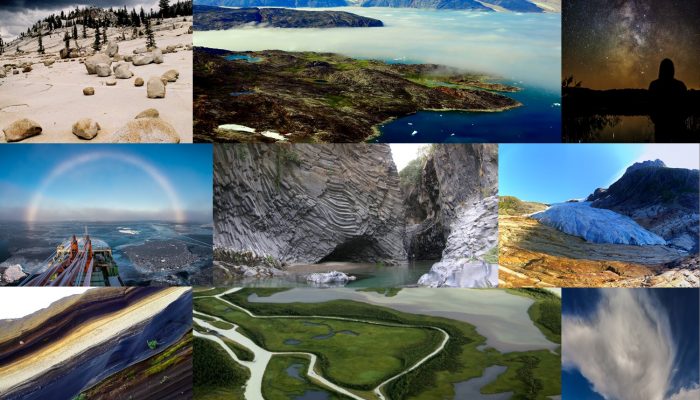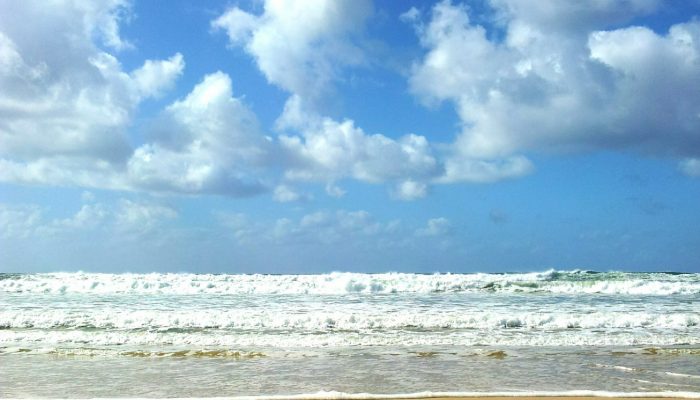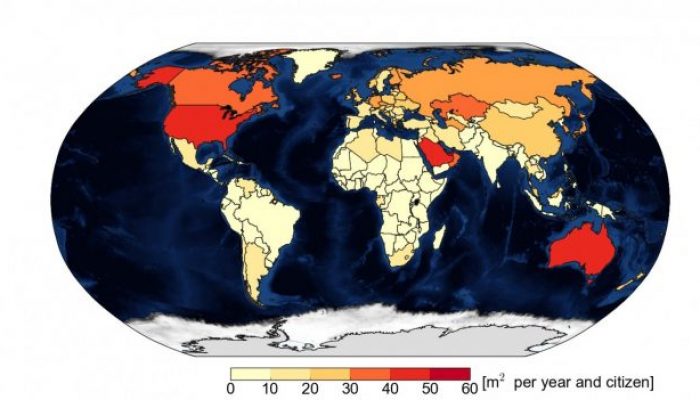There is still a huge amount we don’t know about how glaciers respond to climate change. One of the most challenging areas is determining the response of debris-covered glaciers. Previously, we have reported on a number of fieldwork expeditions to debris-covered glaciers but with this Image of The Week we want to show you another way to investigate these complex glaciers – numerical modelling! Deb ...[Read More]
If you didn't find what you was looking for try searching again.
Geodesy
EGU’s Geodesy Division needs a new early career scientist voice
In the run-up to the general assembly in 2017, The geodesy division is looking for a fresh early career scientist (ECS) to take over the role of the ECS-representative. But what comprises being an ECS-representative? And where can you sign up? Early career scientists represent a significant share of the EGU general assembly attendees. It is therefore desirable to involve this group not only as par ...[Read More]
Cryospheric Sciences
Image of the Week – On the tip of Petermann’s (ice) tongue
5th August 2015, 10:30 in the morning. The meeting had to be interrupted to take this picture. We were aboard the Swedish icebreaker Oden, and were now closer than anyone before to the terminus of Petermann Glacier in northwestern Greenland. But we had not travelled that far just for pictures… Petermann’s ice tongue Petermann is one of Greenland’s largest “marine terminating glaciers”. As the name ...[Read More]
GeoLog
January GeoRoundup: the best of the Earth sciences from across the web
The start of the new year sees the launch of a new series here on GeoLog. Drawing inspiration from popular stories on our social media channels, as well as unique and quirky research news, this monthly column aims to bring you the best of the Earth and planetary sciences from around the web. Major stories One of the biggest stories of this month was the anticipated release of the average global su ...[Read More]
Seismology
Paper of the Month – Bubbles and seismic waves
Our paper of the month is “Bubbles attenuate elastic waves at seismic frequencies: First experimental evidence” (N. Tisato et al., 2015) commented by Luca De Siena. Luca De Siena is Lecturer in Geophysics at the School of Geoscience, University of Aberdeen (UK). He received his PhD from the University of Bologna (Italy) with a scholarship from the INGV-Osservatorio Vesuviano for his work on seism ...[Read More]
WaterUnderground
How did our planet get its water?
Post by WaterUnderground contributors Elco Luijendijk and Stefan Peters from the University of Göttingen, in Germany. After my first ever scientific presentation, someone in the audience asked a question that caught me off guard: “Where does the groundwater come from?”. “Ehm, from rainfall”, I answered. The answer seemed obvious at the time. However, we did not realize at the time that this is a ...[Read More]
Cryospheric Sciences
Katabatic winds – A load of hot (or cold) air?
It might seem obvious that a warming world will lead to a reduction in glacial ice cover, but predicting the response of glaciers to climatic change is no simple task (even within the short term). One way to approach this problem is to come up with relationships which describe how glaciers interact with the world around them, for example, how the ice interacts with the air above it. Our post today ...[Read More]
GeoLog
EGU Photo Contest 2017
If you are pre-registered for the 2017 General Assembly (Vienna, 23 – 28 April), you can take part in our annual photo competition! Winners receive a free registration to next year’s General Assembly! The eighth annual EGU photo competition opens on 1 February. Up until 1 March, every participant pre-registered for the General Assembly can submit up three original photos and one moving image on an ...[Read More]
GeoLog
Imaggeo on Mondays: littoral rainforests
Making room for growing populations, and the resources they demand, comes at the cost of precious natural environments. Rainforests, globally, are under threat from farming, logging and ever expanding cities. It is reported that if current rates of exploitation continue, the world’s rainforests could be lost within the next century. Like almost anything else, rainforests come in all shapes a ...[Read More]
Cryospheric Sciences
Image of the Week – For each tonne of CO2 emitted, Arctic sea ice shrinks by 3m² in summer
Declining sea ice in the Arctic is definitely one of the most iconic consequences of climate change. In a study recently published in Science, Dirk Notz and Julienne Stroeve find a linear relationship between carbon dioxide (CO2) emissions and loss of Arctic sea-ice area in summer. Our image of this week is based on these results and shows the area of September Arctic sea ice lost per inhabitant d ...[Read More]

